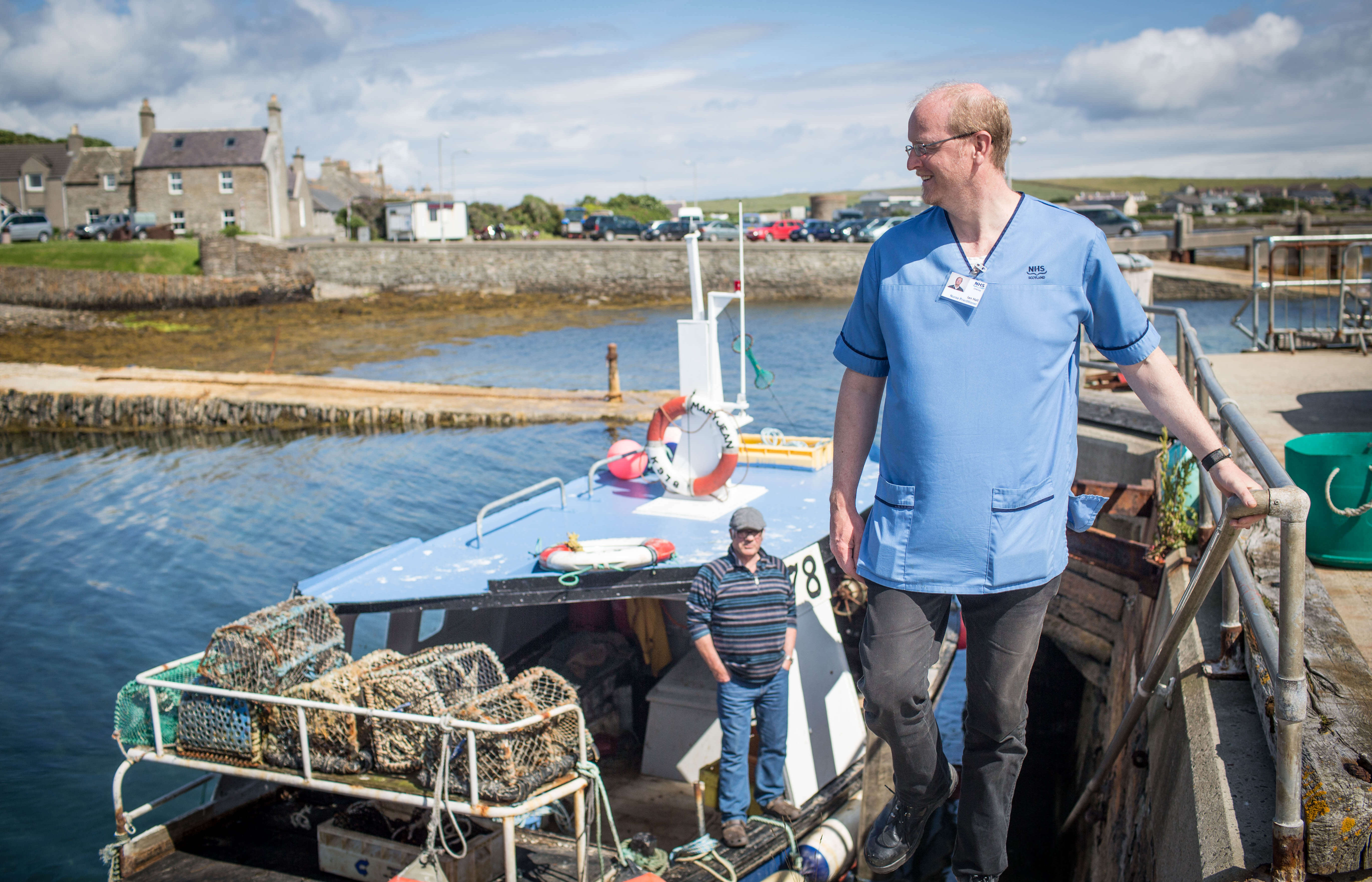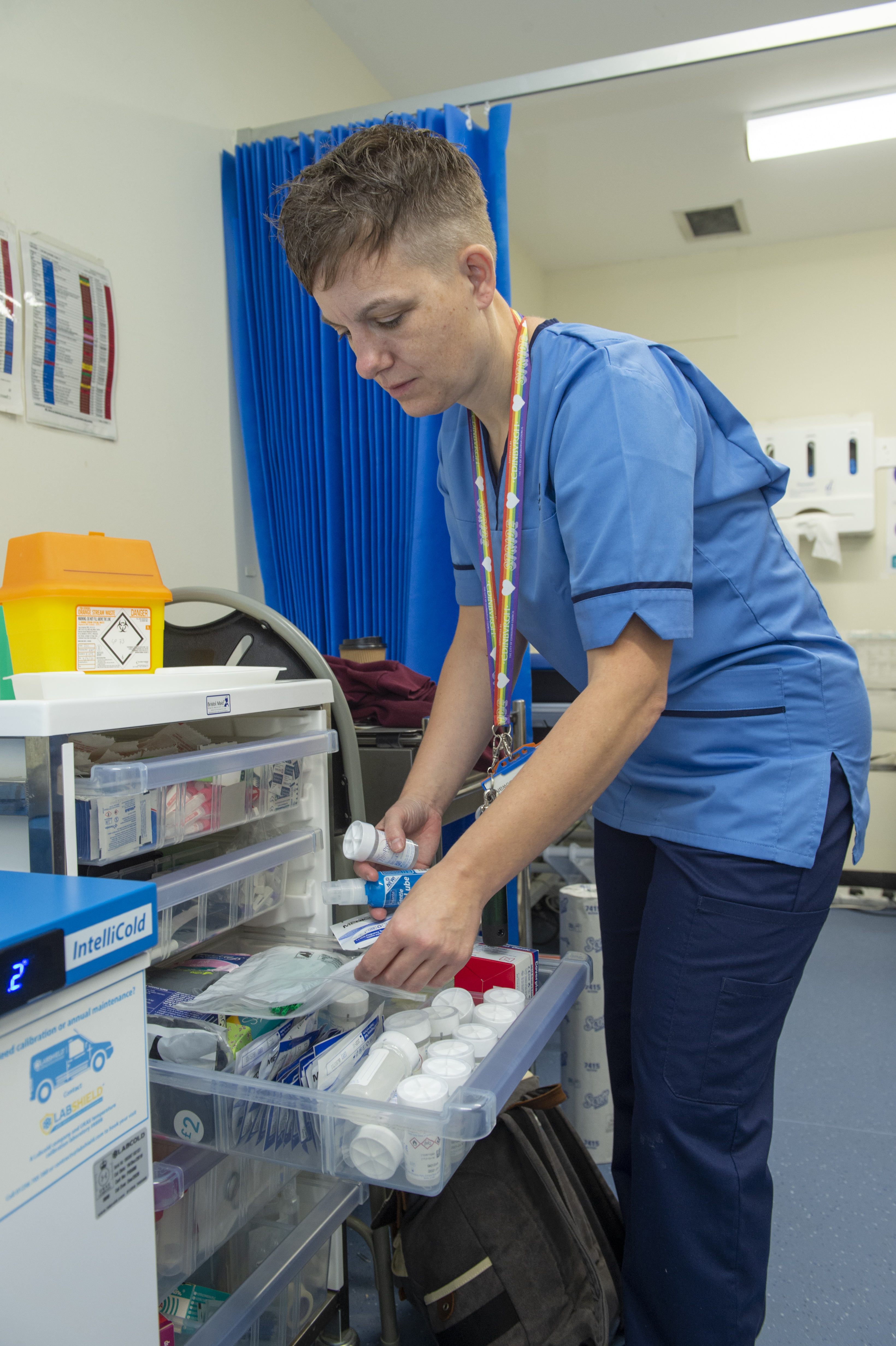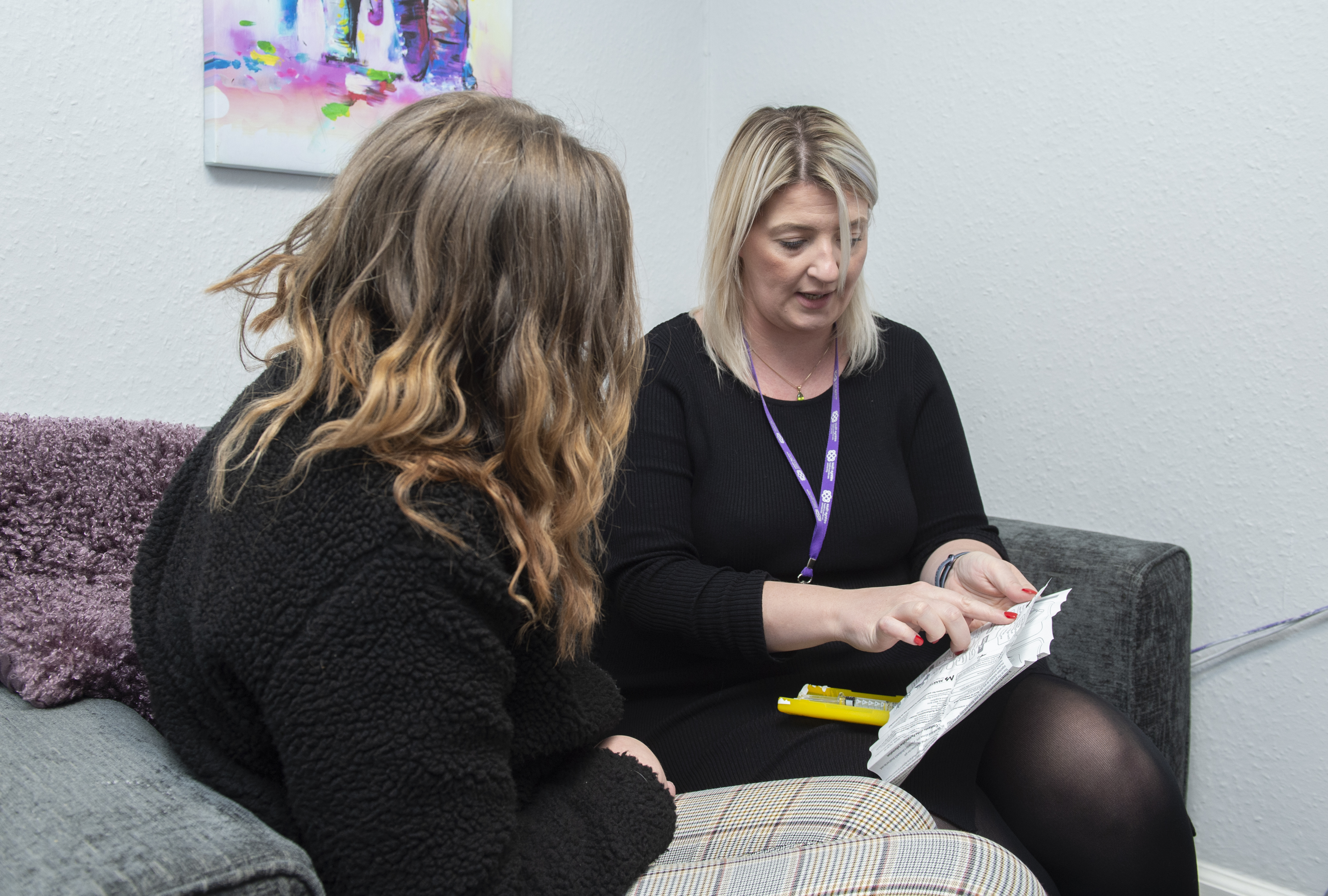
Inclusion health nurse
Inclusion health nurses provide care for people in socially excluded groups including for example those who are homeless, undocumented migrants, asylum seekers, sex workers, and those in contact with the justice system. Inclusion health nurses are aware of the need for safeguarding and the higher prevalence of domestic violence, exploitation, and adverse childhood events in this population. They focus on health equity, promoting public health, preventing illness, and improving access to healthcare.

Lisa Benson
I was originally drawn to emergency nursing because it is fast paced with lots of variety and lots of learning opportunities. After my nurse training, I travelled abroad and worked in a medical surgical unit. Once I had my children, I worked in a nursing home – but always felt that something was missing, and I think it was that sense of immediacy. When the post came up at the prison, I thought there was no chance but after an opportunity to look round the prison I thought, I could do this. Forensic nursing was always an interest and before I knew it, I began working there part time. Sometimes prison nursing feels like a forgotten service, and I wanted to be somewhere I could make a difference. I had already developed skills that I knew I could apply in the prison, skills that could help shape someone during a vulnerable time in their life.
People don’t understand why you would want to take care of people who have been convicted of a crime but we’re all someone’s child and I think anyone can take a wrong turn. Everyone has their own story, and you have to remember that this is someone’s real life, not a tv drama. The trauma someone suffers or the lifestyle they have been exposed to are not always as a result of their own choices. I want to help people back to a sense of normality and stability; I want prison to be a rehab for them.
As part of joining HMP Grampian, I was given the chance to work with the substance misuse team. I am now the team lead. A third of our population have problems with drugs or alcohol. The people I see teach me a lot, their treatment is designed for each individual, and I believe in developing links between prison and the local community to support them. It’s true that some people feel safer in prison. People without trust in themselves or anyone else, may lead chaotic lives with little or no stability. I teach harm reduction and coping mechanisms, to allow people to make healthy changes. As part of my role, I introduced a transfer of care document with multi-organisational links. Whether it’s arranging GP appointments or moving people into housing and hostels I want to provide people with links to the community services they need. Whilst they’re in prison they may be sober for the first time in years, so I use the opportunity to talk about health and do blood work or have mental health assessments completed. It’s about providing each individual with the information, confidence, and support they need to create new pathways.

Inger McGowan
Community nursing was a journey to where my clients were, I don’t even think it was a choice. I’ve been in Scotland for seventeen years now, but I was born and raised in the Netherlands. As early as age eleven I knew I wanted to do something with marginalised groups. In my teens, I did a year of social care and might have stayed there if a gap year hadn’t ignited my passion for history and travel. When I returned, I trained as a Dutch history teacher but couldn’t shake that yearning to work in social justice. When I did move to Scotland; Dutch history became much less relevant. A friend worked for a custodial security company, she introduced me to a job at the high and sheriff courts working with female prisoners and custodies. My eyes were opened to the trauma and continuous tragedy of the women who appeared in court, many returning week after week trying to deal with abusive partners, addiction problems, unhealthy coping strategies or finding ways to feed their children. I wanted to do more for these women, and that’s how I first got into nursing with a strong desire to become a prison nurse after qualifying.
I worked with HMP Edinburgh for 5 years and although I loved my job, I began to see that the incarceration of these women was often unhelpful. An opportunity arose to work at a trauma-informed health and social work service that aims to keep women out of prison by supporting them to deal with their past and empower them to make their own choices for the future.
Often, healthcare professionals focus on what is wrong with the person, but I like to ask what has happened to them instead. Many people find themselves on the edge of society. From those who have adapted unhealthy coping strategies like substance misuse to those that find themselves homeless or in the criminal justice system, these people have much poorer health outcomes, both physically and mentally. Sometimes those living on the fringes of society find themselves there by simply trying to survive.
Looking at history I don’t believe that people are responsible for everything that happens to them in their life. The situation they find themselves in wasn’t always a choice. I believe that you can firefight, but that it’s more helpful to find the root cause of distress. My aim as a nurse is to ultimately improve someone’s health, and I take a very holistic point of view. The more trauma you have experienced, the higher the chances that you might have difficulty parenting, engage in substance misuse, go to prison or rely on unhealthy coping strategies. Health includes someone’s social health and whether they have friends and healthy relationships. We offer a trauma-informed service for women who have been in the criminal justice system. We work with women who have suffered significant amounts of trauma or adverse childhood experiences; experiencing trauma is linked to poorer physical, social and mental health outcomes. My first aim is always to build up a trusting relationship, these women’s children might be in care, they face social stigma, and, in their minds, they have been labelled unfit. When we meet, they often have little trust in any professionals. I specialise in sexual health and when I ask women about sex education it has often been completely missed out. I have to give them the okay to open up about these topics and hope that they will trust me.
I am the only nurse in a team of social workers, community support workers and psychologists. We work closely together and with the wider health and social care partnership, and the third sector. Teamwork is key, as silo working does not benefit anyone. I am grateful to promote a co-production environment through close working with other services.
My expertise may feel narrow at times, but I know that ten years of working with this client group has allowed me to pick up multi-dimensional skills. I work with psychologists and social workers, which gives me a unique insight into other professions and the wider service network. Removing silo working is key when working in the community. You need to be able to see the bigger picture and work closely with the wider team. We all have a part to play in communication, and recognising each other’s roles and strengths are paramount to cater to people’s needs. Many of the people I care for have lost trust in professionals over the years, including healthcare professionals. It is my job to find out how I can help them get back on track. I find out if there are any outstanding appointments or health interventions and I will find ways to support them and help them prepare to engage with appointments. When a 45-year-old woman, who has never had a smear test before, asks me to do it because she trusts me, I know I have done my job right.
Trauma-related behaviour like avoidance or difficulty in managing emotions is still often misunderstood or goes unrecognised, this can result in non-engagement. Part of my role is helping other professionals develop ways of working that are inclusive of everyone. It’s so important that we understand the importance of combating health inequalities and inequities. I want to improve the women’s health and wellbeing as well as keep them out of the criminal justice system.
Since this interview, Inger has taken up a position as Practice Nurse in Homelessness and Inclusion Health in Edinburgh.

Gayle Ridge
My post within the South Ayrshire Community Mental Health Team covers five hostels and several hundred temporary furnished homeless flats and I work with any individual experiencing homelessness or at risk of homelessness. Geographically, South Ayrshire is semi-rural and the issues that clients present with are as varied as our landscape. The age range is varied, and the presenting issues can range from social problems to health and wellbeing, no two days are ever the same and every day I get to meet some of the most courageous and brave individuals. Rough sleepers are often what we assume our homeless population to look like, but there are many aspects of the homeless including temporary flats, hostels, individuals, and family units.
I wanted to work with a marginalised group, whose voices are seldom heard. Working in homeless and inclusion health is a real privilege, and I am very fortunate to work in a health board that supports and addresses the vulnerabilities that people experience. Homelessness is never only about not having a home but is part of a much bigger story of complex health and social needs. The work I do enables equitable access to services across all sectors of health and wellbeing and that means providing care where it is needed. My vision is a community where compassion is extended to everyone.
Effective communication and empathy are the most important skills for my role. A large part of my job is building good relationships and trust. I meet with people wherever they are, listen carefully to their stories, and undertake a clinical assessment to determine what their needs are so that I can help them navigate the right support. It’s about letting them know I’m here – this could be as simple as knocking the door of their room in the hostel, or a chance encounter on the stairs. It’s about being present when they need support, bringing my nursing expertise to assessing their mental and physical health, and being there to listen. It’s also important to build solid relationships with other agencies – including with local police, social services, public health/ health improvement, as well as the voluntary sector. I consider supporting the staff from other organisations as part of my role, if there are any adverse events within the homeless services I try to make time to check in with colleagues and use my expertise as a mental health nurse to support them too. Sometimes people just need to know that someone else cares about their experiences.
I met a woman several years ago whilst she was homeless and met her again recently. When she arrived at my clinic her first words were “I’m so glad it’s you, you will understand.” There was a recognition that we were both ‘in it together’ and although this was a journey she would make by herself, she knew I would be in her corner cheering her on. To be allowed to be involved in somebody’s else’s life, even just for a short period of time, is both a big responsibility and a great honour.